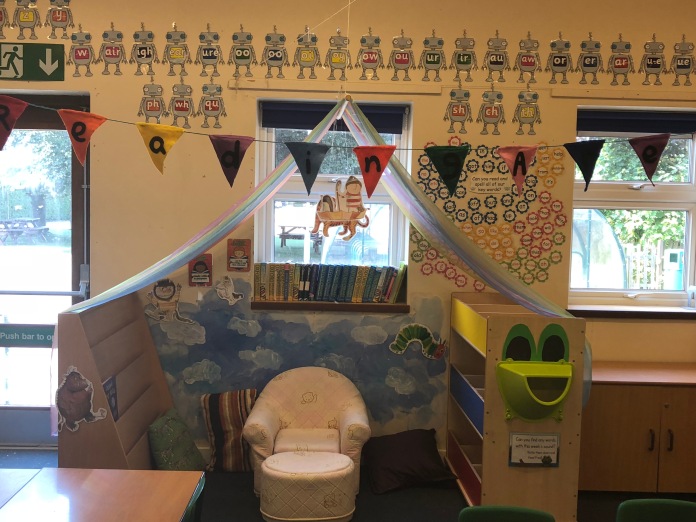I’ve needed two weeks to formulate this blog post in my mind. Tongue in cheek, I nearly named it “I don’t know everything,” but thought I risked putting people off before they even clicked the link. I believe that one of my strengths is recognising my expertise whilst acknowledging I have much to learn. It’s not always an easy, nor a perfect balance, but I strive to continue learning and growing in all of my endeavours.
Over the past several weeks, I’ve noted my thoughts about the teaching of maths. It’s not a discipline I’ve spent a lot of time thinking about, much less teaching to young children. Though I have a great deal of knowledge about maths, am very competent in advanced mathematics and beyond that, advanced statistics, I feel least comfortable teaching in that domain than any other.
Let me be clear in saying that I do not believe my teaching of maths is in any way detrimental to the children in my classroom. Rather, I don’t believe it’s the best teaching I can do, and that may actually bother me more (likely because I don’t think I c/would ever teach in a detrimental manner).
This has me thinking about how we continue developing as professionals in the teaching profession.
In an earlier blog, I noted our school’s focus on building a ‘Culture of Error’ for children. I am thinking even more about the importance of a ‘Culture of Error’ and a ‘Culture of Growth’ for teachers. I am willing to demonstrate my professional vulnerability with my colleagues, because I believe they can help me be better. But, this requires a culture shift across the school (across most schools, I would say), because we need to recognise where our strengths lie, where we can offer support to our colleagues, and how we can do so without judgement. It’s a shift in thinking from the expectation that teachers must enter the classroom as experts in all domains, to a recognition that we will have strengths in some areas, whilst requiring development in others.
Berliner (2004) discusses the need to codify knowledge in a domain in order to develop our expertise in that area. Primary teachers, then, must do this across all domains they are expected to teach. When I think about my two days in the classroom each week, that means the domains of: Maths, English, Reading, Phonics, Science, and Music/ICT/PSHE. If I were a primary teacher that taught 5 days per week, I’d add History, Geography, RE, DT, and PE to those already listed (and likely others I am forgetting).
When you think about it in that way, we shouldn’t expect all primary teachers to enter the classroom fully prepared to teach all subjects. Rather, we should consider how to best support one another in developing our expertise so we can demonstrate continued growth in competence across all domains. To do this, we need to consider how to best engage in peer-to-peer coaching in a manner that is low stakes and high return.
Given current budgets, we’d likely need to get creative on how to make this work. Let’s say I reach out to my colleague and ask her to observe my teaching and offer feedback. Most likely, there’s little room in the budget for her to get supply to do this. But, I could record my teaching (which, as my own research indicates, is a more powerful approach to offering considered feedback [Gelfuso & Dennis, 2014]), and then offer to take my colleague’s playground duty that same week so she can watch the video (you rarely need more than a 20-minute clip to get a sense of what’s happening in a lesson).
We can then have a conversation around my teaching that allows her to cue in to specific points in the lesson, using the video, to help me understand more effective practices. Because of the video, I will likely be better able to recognise the nuance between what I am doing and what she recommends than I would be if I were asked to rely on my memory of the teaching experience. This can happen as frequently as need be to strengthen my teaching practices in maths.
That said, I also have strengths that I can offer to colleagues. If I have a colleague less confident in their teaching of reading, or in the implementation of vocabulary teaching across the domains, then my expertise will serve them well. Likewise, I have a strong background in the teaching of science and can offer support in that domain also. What this does is allows me to acknowledge where I need support, whilst also offering my support to others. In the primary world, where we are expected to codify our knowledge of up to 15 domains, this give and take is essential to developing expertise within our school and the profession.
As I continue code switching between my role as a Year 1/2 teacher and my role as a teacher educator, I’ve become more firm in my conviction that we must change the culture of primary schools from one where observations are largely seen as evaluative to one where observations serve as a corollary to in-house professional development that relies on both the expertise and the vulnerability of staff to support and develop each other’s practice.
References
Berliner, D. C. (2004). Describing the behavior and documenting the accomplishments of expert teachers. Bulletin of Science, Technology, & Society, 24(3), 200-212.
Gelfuso, A. & Dennis, D. V. (2014). Getting Reflection Off the Page: The Challenges of Developing Support Structures for Pre-service Teacher Reflection. Teaching and Teacher Education, 38, pp. 1-11.

